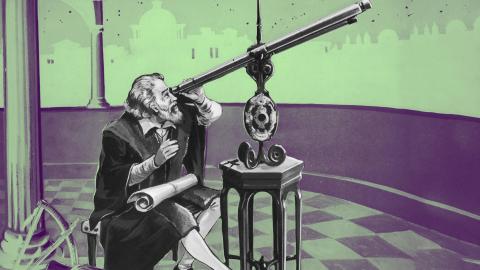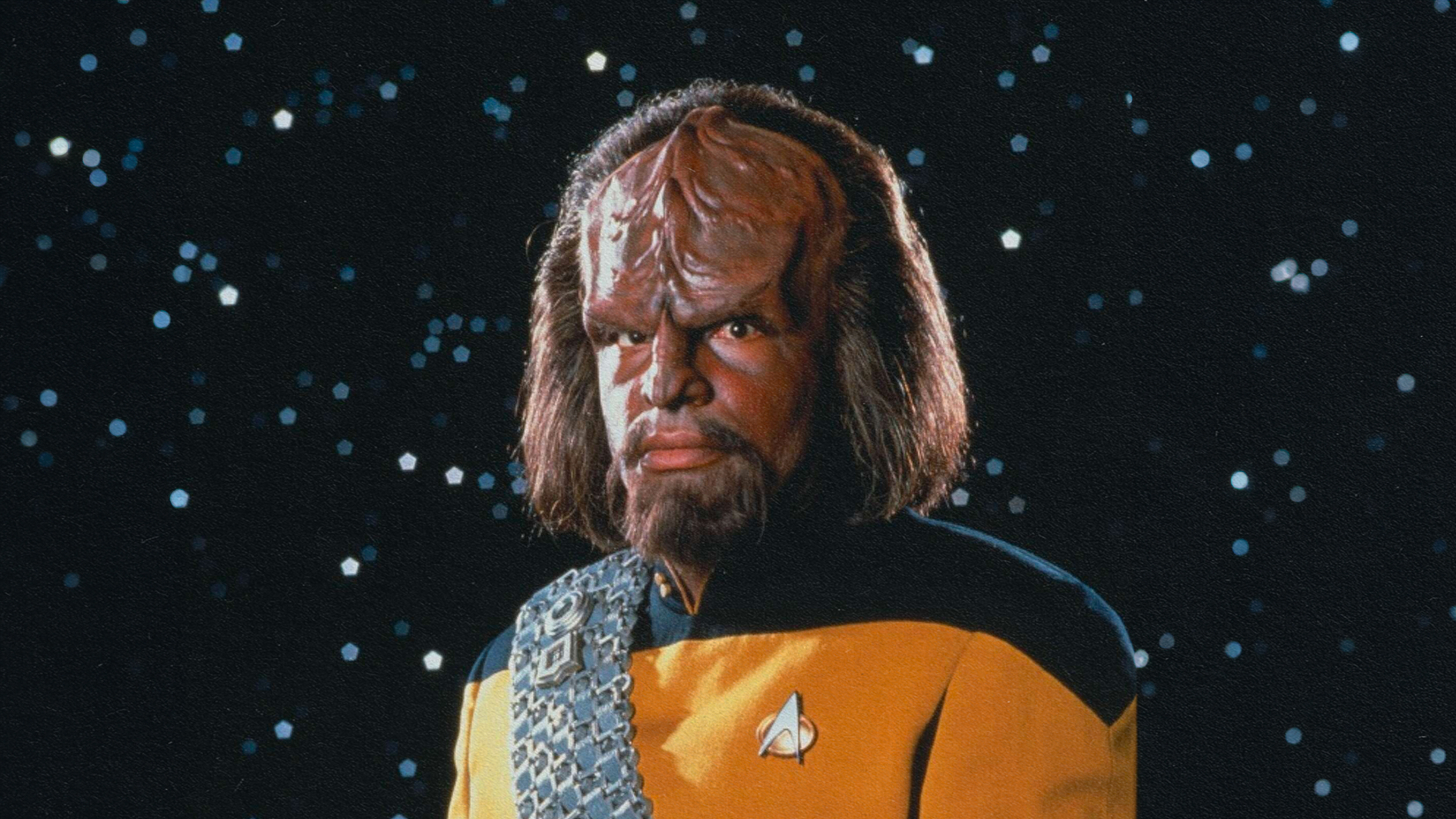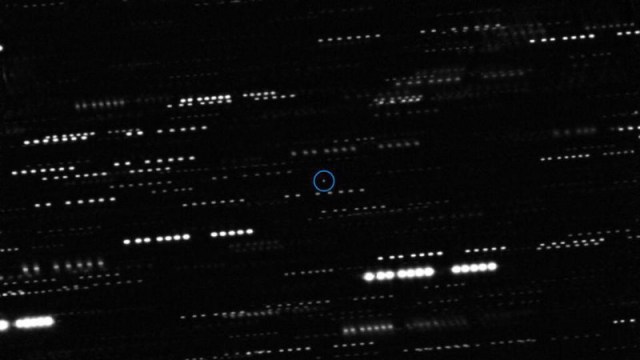Thinking thresholds: Is science the only source of truth in the world?

Credit: Hulton Archive/Getty Images / Big Think
- With all due respect to Copernicus, writes Adam Frank, humans are at the center of it all.
- Science is just one of many sources of truth in the world. The lived, subjective experience of humans creates reality, and when science excludes subjective experience, we end up with a less useful kind of science.
- Can science and philosophy form a union that gets us to a far richer account of the world and a far richer science?
So, what is this about? Where are we going with it all? What is its point?
Today marks my first post of this most excellent incarnation of 13.8. Since the new home for the blog represents a continuation of a project of thinking Marcelo and I started a decade ago, I wanted to begin with a 10,000-foot view. What was it that Marcelo and I were aiming for when we began with 13.7 Cosmos and Culture on NPR 10 years ago? And where are we pointing towards now?
The answer, I believe, can be embodied in a single word: thresholds.
I am a scientist and all I ever wanted to be was a scientist. For me, science was never a career choice. Instead, it was an all-encompassing way of living. Through science, I found a perspective and a path that offered a larger way of seeing my small life and its complications. Through science, I could also see how exquisitely sculpted the world was. That beauty gave me comfort and made the experience of my life richer. For that, I have been profoundly grateful.
But as I went from a Carl Sagan-reading, science-obsessed teen to a math-physics drunk graduate student and on to card-carrying professor, my approach to science has changed. Always an atheist, when I was younger, I thought no aspect of the world was immune to science’s reach. The triumphs of Newton, Lagrange, Boltzmann and Einstein showed me that science offered a way out of the cave of limited human perspectives. Through sciences’ principles and practices, I thought we’d found a way to a truly objective view of the world. It was a God’s-eye perspective that revealed the totality of the universe—space, time, matter—independent of us. It was the world, in and of itself, revealed to our minds through the power of reason.
Sounds glorious, doesn’t it? It certainly did to me at one point. Now, however, I think there is more, much more to the story of us and the world. Now I’ve come to believe that the whole “Gods-eye view” thing was a mistake. It was a very useful mistake and one that helped positively shape the first three or four hundred years of science’s history. But it was a mistake nonetheless and now it has led us to a remarkable range of paradoxes and closed loops in subjects ranging from cosmology to consciousness. The job before us then is to go beyond that mistake and see where it leads us.
That is why I am interested in the science and philosophy of thresholds.
There is a fundamental problem with this “view from nowhere,” this perfectly objective God’s-eye view of science. That problem is it fails to see our proper place in the universe. With all due respect to Copernicus, that place is at the center of it all.
There can be no experience of the world without the experiencer and that, my dear friends, is us. Before anyone can make theories or get data or have ideas about the world, there must be the raw presence of being-in-the-world. The world doesn’t appear in the abstract to a disembodied perspective floating in space… it appears to us, exactly where and when we are. That means to you or to me right now. In other words, you can’t ignore the brute, existential, phenomenological fact of being subjects.
Of course, ‘subjectivity’ is a dirty word in science. We rightfully spend a lot of time trying to excise our research of the effects of subjectivity. That is all well and good if you are trying to understand particles in a box or bacteria in a dish. In fact, the methods we use to purge our research of subjective biases reveal the real meaning of ‘objective’ in science. It’s not a metaphysical position about some perfect, platonic ideal version of reality. Instead, it’s about getting the same results if we perform the same experiment. That’s when the knowledge gained from an experiment can properly be called objective.
But as we’ve pushed deeper and deeper into the experience of the world, it no longer makes sense to ignore that we are always at the center of that experience. From the nature of time to the nature of consciousness, taking the act of being a subject seriously offers a new direction for thinking about the biggest issues facing science and philosophy.
We have to invent new languages that can deal with the strange loops where the world creates the self, and the self creates the world. We have to deal with the fact that reality is always our reality.
That’s where the idea of thresholds appears. I once read a definition of poetry as being “that which takes us to the boundary between the expressible and the inexpressible.” That, to me, is the real frontier. That is what I think we should be interested in once we recognize that science is not the only kind of truth out there. Poetry and all the arts, for example, reveal their kinds of truth. And there is a truth that can come from spiritual endeavor (or whatever you want to call it) as well. These other truths have their own place and their own power and don’t simply reduce down to, say, neuroscience or some other scientific discipline.
To understand them, and science’s place among them, we have to be willing to explore those thresholds between the expressible and inexpressible. We have to invent new languages that can deal with the strange loops where the world creates the self, and the self creates the world. We have to deal with the fact that reality is always our reality.
The problem with the God’s-eye view of science is that it confuses the illusion of being right for actually being in accord with the weirdness of being an experiencing subject. It appears to offer a perfect, hermetically sealed account of the universe that seems so beautiful until you realize it’s missing the most important quality: life. Not life as an account of a thermodynamic system, but life as our embodied, lived experience.
I am hopeful there are ways to think about science and philosophy that never forget that fact. I am hopeful that, if we can work our way up to those dynamic thresholds of experience, we may get a far richer account of the world and a far richer science. Most of all, I am hopeful that by facing those thresholds we might develop a new understanding that is both beautifully true and truly helpful.
That, in one form or another, is what 13.8 is going to be all about.
Visit 13.8 weekly for new articles by Adam Frank and Marcelo Gleiser.





